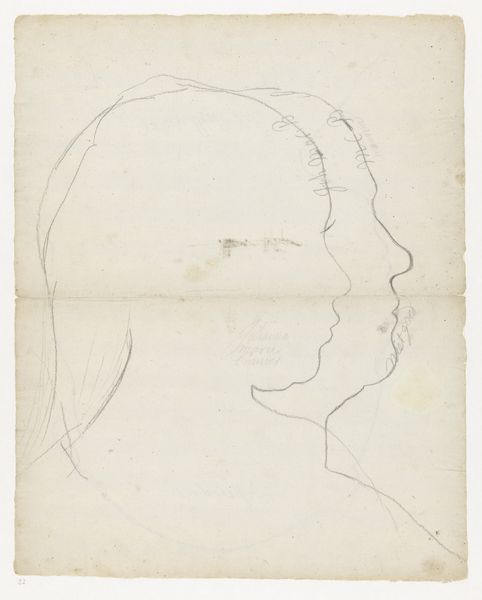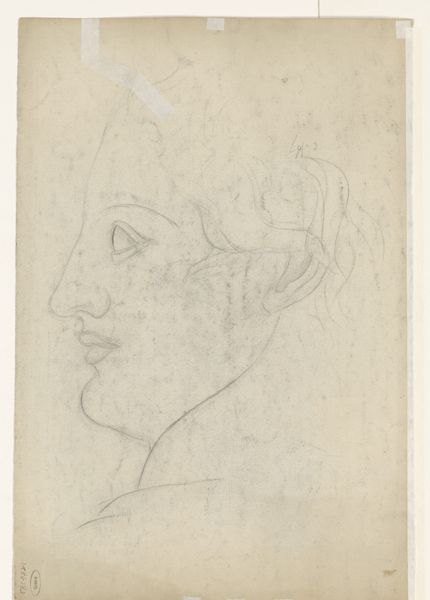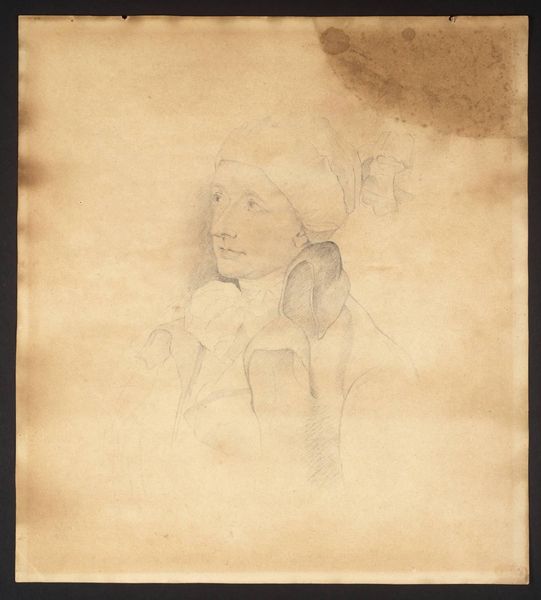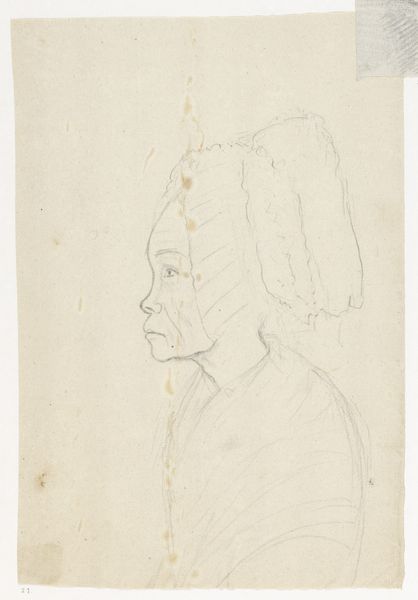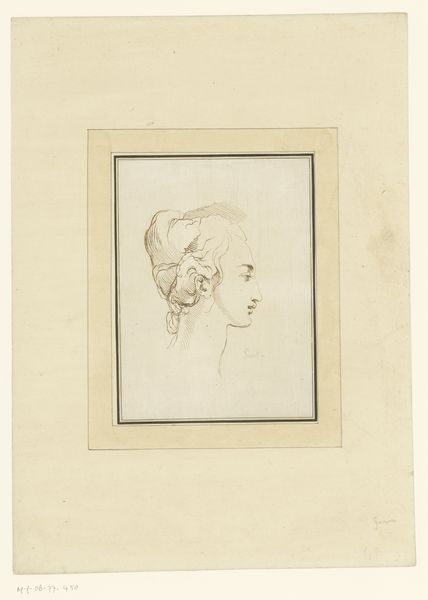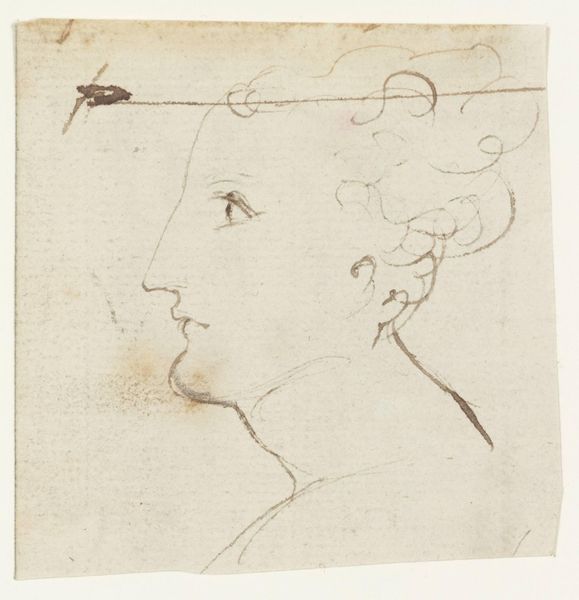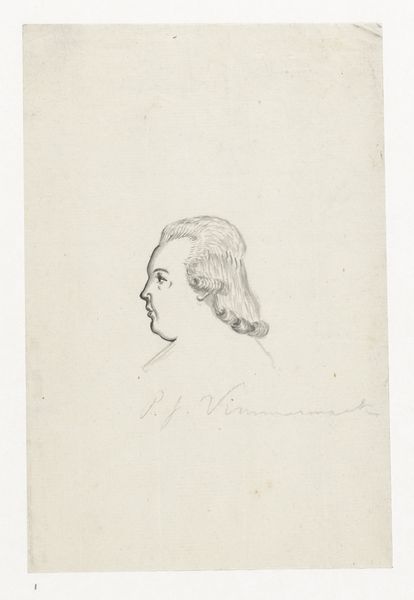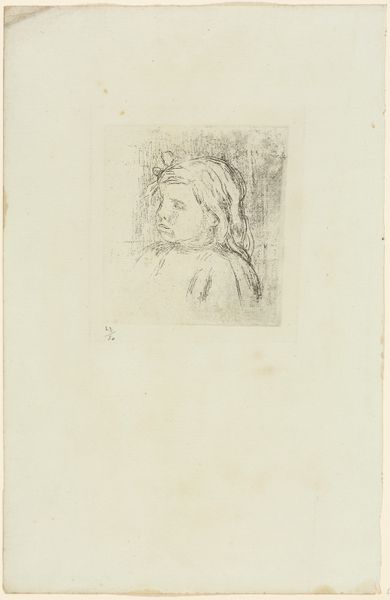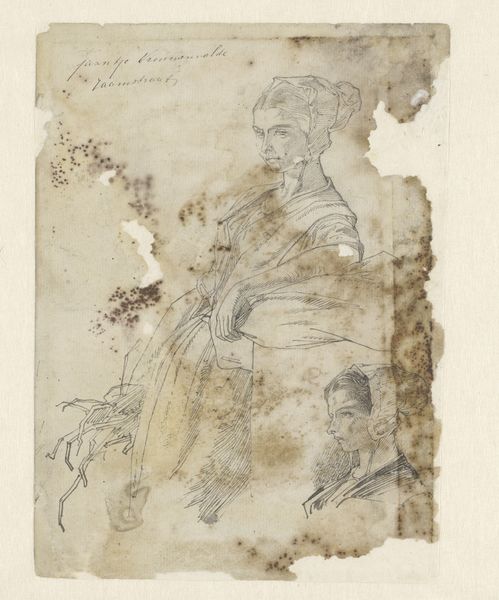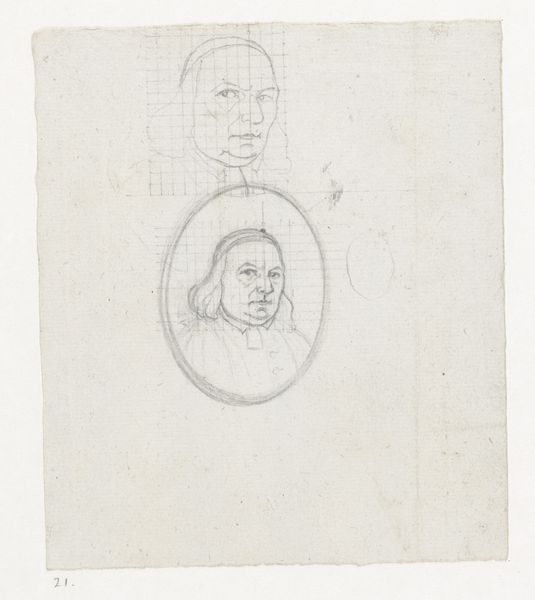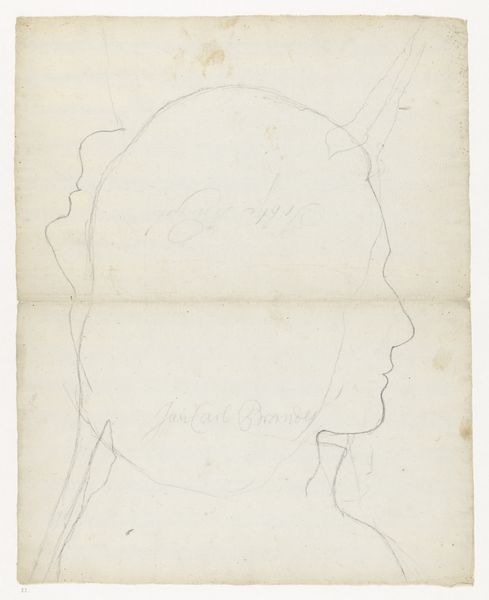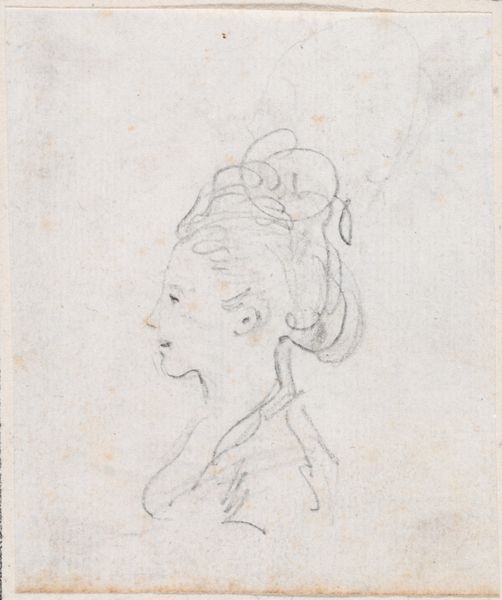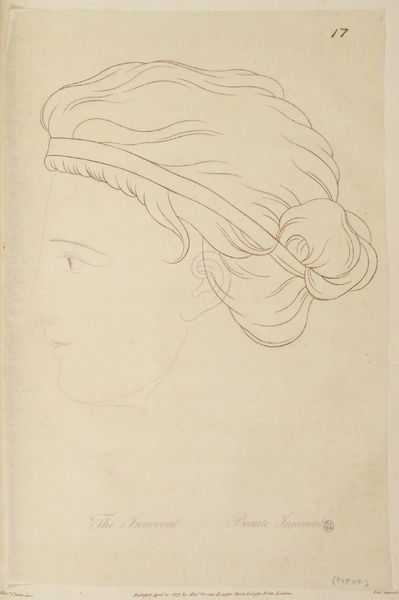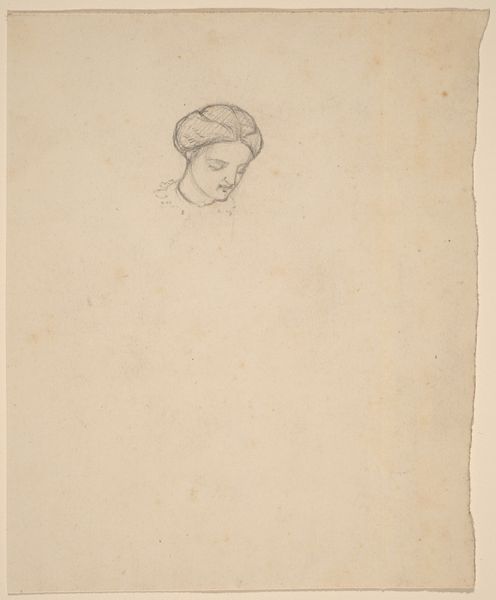
drawing, pencil
#
portrait
#
drawing
#
neoclacissism
#
figuration
#
form
#
pencil
#
line
#
academic-art
Dimensions: height 414 mm, width 332 mm
Copyright: Rijks Museum: Open Domain
Editor: This is "Portrait of Hedwig Catharina Wimermark," a pencil drawing by Jan Brandes, dating somewhere between 1788 and 1806. The delicate lines and paper suggest a study, but there's also a formality in the sitter's pose. What strikes you about it? Curator: Well, immediately, I consider the material reality: pencil on paper. It's not just a choice, it's an economy. Pencil allows for revision, for a certain efficiency in capturing a likeness for, perhaps, a future, more permanent commission. Who was Jan Brandes working for? And what was Hedwig Catharina Wimermark’s social position? Editor: I see. So the *type* of art making speaks to the social dynamics at play? Curator: Precisely! The choice of materials – the readily available pencil versus, say, expensive oil paints – speaks to the function of the portrait and the societal value placed on Wimermark. Was this portrait intended for public display, or was it a private keepsake? Understanding that helps us unpack its meaning. Also, consider the labor involved. Pencil drawing, although seemingly simple, required skilled hands. What does that labor represent? Editor: It's fascinating how something that looks so simple can be interpreted on a social and economic level. I always thought of portraits in terms of likeness and style, not the *material* choices behind their creation. Curator: Material choices *are* stylistic choices, and social statements. The labor that created the line work becomes intertwined with what is represented in the portrait itself. Editor: I’m going to remember that: material equals style equals a kind of silent social declaration. Thank you!
Comments
No comments
Be the first to comment and join the conversation on the ultimate creative platform.
